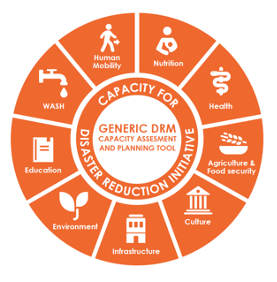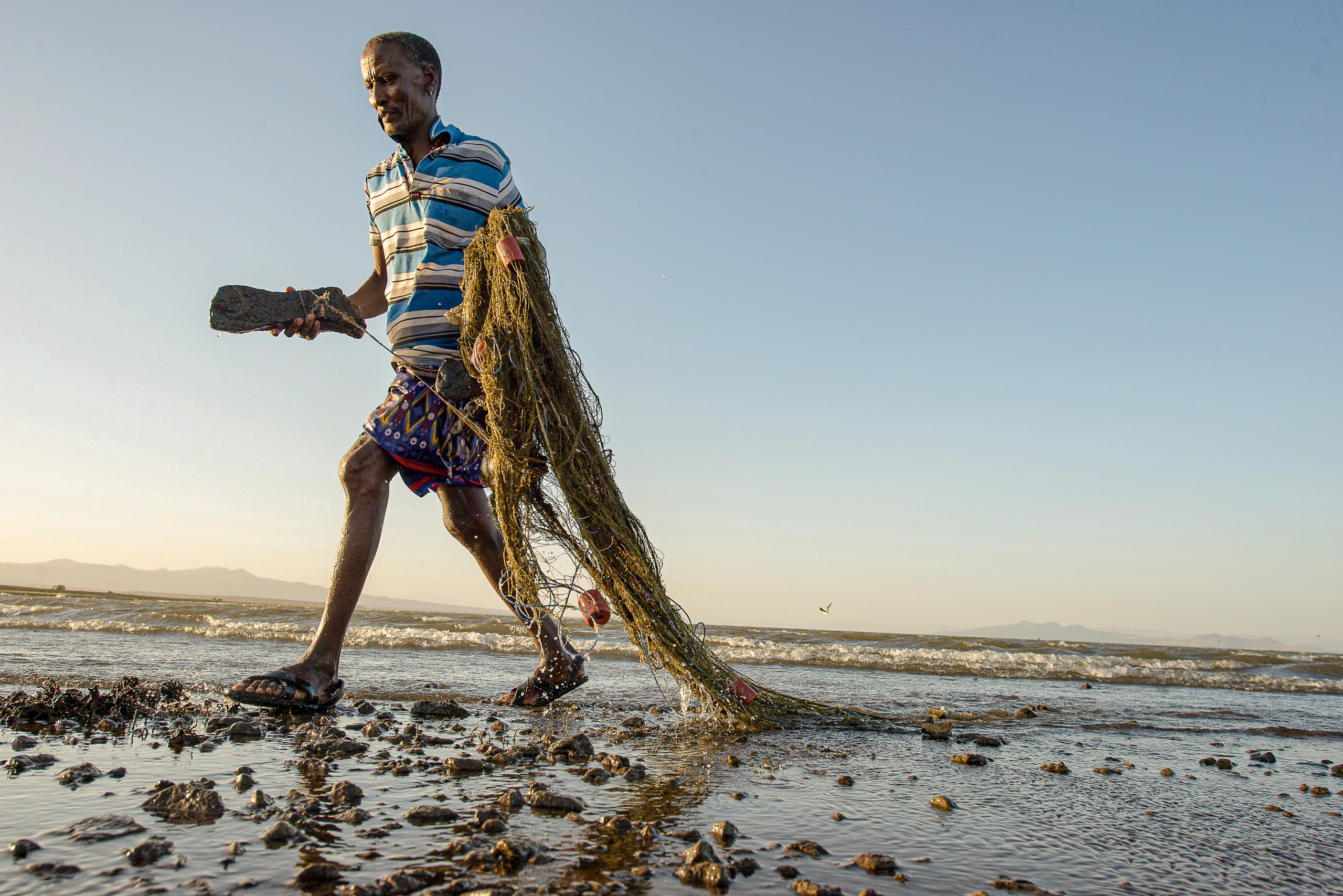UNICC helps to build and host the UN inter-Agency CADRI tool for capacity diagnosis and planning
CADRI partnership – capacity for disaster reduction initiative
As the COVID-19 pandemic has amply revealed, digital solutions for capacity development support to at-risk countries are a critical priority for UN Agencies. CADRI partners are seizing the opportunity to test and improve the delivery of the capacity development services in the virtual space. UNICC is now helping to make this a reality.
UNICC has been working with CADRI, the Capacity for Disaster Reduction Initiative, to provide digital tools for disaster resilience. Founded by three UN organizations – OCHA, UNDP and UNDRR, CADRI is a global partnership led by the United Nations and the International Red Cross and Red Crescent Movements systems. It gathers 20 humanitarian and development organizations that came together to build a unique mechanism for countries to access expertise in disaster risk reduction and climate change adaptation. Over the past decade, CADRI has deployed expert teams to more than 30 countries.
CADRI has broadened its offer of capacity development services to include climate change adaptation in addition to disaster risk reduction. The CADRI methodology integrates Leave No One Behind, conflict-sensitivity, and gender-responsiveness principles in its approach to capacity development. It is scaling up services at regional levels to respond to increasing country demand for capacity development support. UNICC is supporting with a variety of digital business solutions.
At the request of governments and UN Country Teams, and through its digital capacity diagnosis and planning tool, CADRI is helping countries identify critical capacity gaps and develop clear capacity development interventions to address these.
CADRI partners provide a wide range of services to countries, from risk information systems support and risk-informed planning processes to preparedness for response and recovery support, with tailored capacity development services in preparedness for disaster response.
As much of the world undergoes further digital transformation with expanded virtual working practices, digital tools amplify support to various sectors, including agriculture and food security, nutrition, health, education, the environment, infrastructure, water, sanitation and hygiene and human mobility.

Credit: CADRI
The CADRI Tool
Enter the CADRI Tool. Custom-built to support virtual environments, the tool is used to guide assessors and planners to apply an analytical frame to assess capacities to manage disaster risk reduction (DRR) and climate change adaptation (CCA) that is relevant to a country context. As a joint UN programme with joint funding proposals, it is used to assist in developing national (DRR) and CCA strategies, inform on national contingency planning, identify entry points for risk reduction in national development plans.
UNICC has been a key partner in developing our CADRI Tool, which supports capacity development for disaster risk reduction initiatives through participatory planning. CADRI partners are seizing the opportunity to test and improve the delivery of capacity development services in the virtual space.
Sophie Baranes, CADRI Partnership Coordinator
The CADRI Secretariat and the UN International Computing Centre initially released the CADRI Tool for Capacity Diagnosis and Planning in early 2022. Built upon questionnaires reflecting generic disaster risk reduction, preparedness and climate change adaptation elements, along with agriculture, food security and human mobility, the tool is now being used across partnership environments globally.
Collectively developed by CADRI partnership Agencies, the CADRI Tool guides teams to conduct capacity diagnosis processes at the country level. It provides users with a wealth of thematic resources to support countries in implementing disaster risk reduction and climate change adaptation initiatives at national and local levels. The tool is used for CADRI-supported missions as well as in-country processes led entirely at a country level.
The CADRI Tool project goal was to develop a methodology and system that allows Capacity Diagnosis teams to customize country questionnaires based on an array of filters including modules, hazards, capacities, report elements, and principles. Once a questionnaire is generated for a particular country, team members are invited to the system to tailor their questionnaire subsets further for use and application in the field.
The results of in-field interviews are input into the system where they can be reviewed by the team and approved by the sub-team and team leader. All interview data is amalgamated into a final report which includes diagrams and other visuals based on a scoring metric.
Benefits
• A system to house data for analyzing disaster capacities against actual capabilities for disaster readiness
• A pathway to address disaster readiness gaps
• Housing data in a unified system to allow decisions to be made for risk-informed planning, ultimately saving lives as well as valuable resources
• A governmental partnership approach to understanding risk-informed planning
• Provides a practical tool and expertise to understand and respond to disaster and climate risk
• A country- and government-led participatory and inclusive process
• Operational, humanitarian response, providing opportunities to invest in early warning/action
• Significant Return on Investment
• Digital-first solution for partnership and collaboration
• Effective and efficient solution to combat climate change disasters.
Project deliverables include migrating the previous CADRI website to a UNICC-hosted cloud platform, a website redesign and modernization, CADRI Tool baseline development, tool advanced development and a reporting dashboard.
CADRI Tool features include assessments questionnaire, assessment results and data, workflows, such as creating an assessment questionnaire with questionnaire contributors, reviewers, editors, approvers and publishers. The tool also generates email notifications, deadline alerts, etc. for each relevant user groups. The tool offers an assessment management dashboard with a single view of all processes and their statuses.
Ongoing support services include hosting service support (monitoring, backups, access control and user management and cloud services management), application and software support, service desk support (24/7) and security management (regular patch management , anti-malware/virus tools and service operations as per industry standards of ISO 27001.
UNICC has been a critical partner to assisting CADRI in building and maintaining the CADRI Tool, supporting capacity development for disaster risk reduction initiatives through participatory planning.
CADRI partners beginning to use the system regularly to test and improve the delivery of capacity development services in their virtual spaces.

